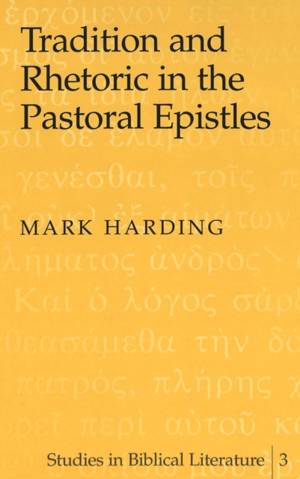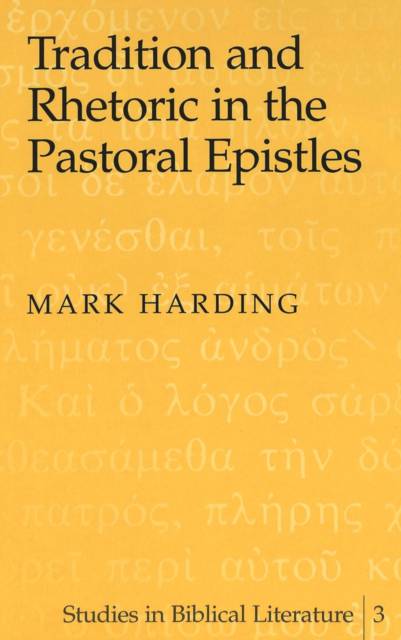
- Afhalen na 1 uur in een winkel met voorraad
- Gratis thuislevering in België vanaf € 30
- Ruim aanbod met 7 miljoen producten
- Afhalen na 1 uur in een winkel met voorraad
- Gratis thuislevering in België vanaf € 30
- Ruim aanbod met 7 miljoen producten
Zoeken
Omschrijving
Much of the debate concerning the Pastoral Epistles of the New Testament (1 Timothy, 2 Timothy, and Titus) has concentrated on the question of their authorship. The most reasonable explanation for them is that they were written in a post-Pauline context by one committed to commending his interpretation of Paul's legacy to his audience in order to secure it against the inroads of false teachers. However, little attention has been given to the persuasive strategies the author employs. This book, therefore, investigates the rhetoric by which the Epistles' author commended his actualization of the Pauline tradition. The strategies that the author uses derive from the sphere of ancient letter-writing and from oratory.
Specificaties
Betrokkenen
- Auteur(s):
- Uitgeverij:
Inhoud
- Aantal bladzijden:
- 253
- Taal:
- Engels
- Reeks:
- Reeksnummer:
- nr. 3
Eigenschappen
- Productcode (EAN):
- 9780820437675
- Verschijningsdatum:
- 1/04/1998
- Uitvoering:
- Hardcover
- Formaat:
- Genaaid
- Afmetingen:
- 160 mm x 230 mm
- Gewicht:
- 539 g

Alleen bij Standaard Boekhandel
+ 117 punten op je klantenkaart van Standaard Boekhandel
Beoordelingen
We publiceren alleen reviews die voldoen aan de voorwaarden voor reviews. Bekijk onze voorwaarden voor reviews.







